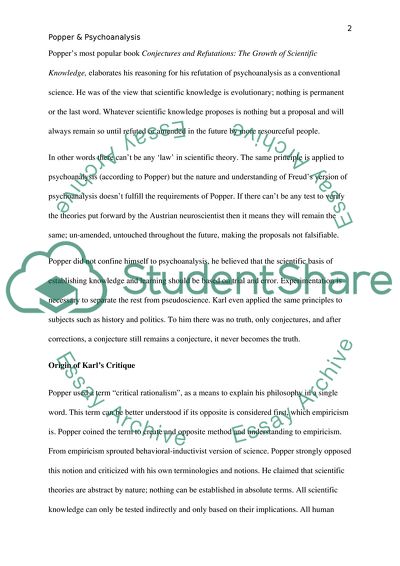Cite this document
(What is Karl Popper's View of Psychoanalysis Coursework Example | Topics and Well Written Essays - 1750 words, n.d.)
What is Karl Popper's View of Psychoanalysis Coursework Example | Topics and Well Written Essays - 1750 words. https://studentshare.org/psychology/1794930-what-is-karl-poppers-view-of-psychoanalysis
What is Karl Popper's View of Psychoanalysis Coursework Example | Topics and Well Written Essays - 1750 words. https://studentshare.org/psychology/1794930-what-is-karl-poppers-view-of-psychoanalysis
(What Is Karl Popper'S View of Psychoanalysis Coursework Example | Topics and Well Written Essays - 1750 Words)
What Is Karl Popper'S View of Psychoanalysis Coursework Example | Topics and Well Written Essays - 1750 Words. https://studentshare.org/psychology/1794930-what-is-karl-poppers-view-of-psychoanalysis.
What Is Karl Popper'S View of Psychoanalysis Coursework Example | Topics and Well Written Essays - 1750 Words. https://studentshare.org/psychology/1794930-what-is-karl-poppers-view-of-psychoanalysis.
“What Is Karl Popper'S View of Psychoanalysis Coursework Example | Topics and Well Written Essays - 1750 Words”. https://studentshare.org/psychology/1794930-what-is-karl-poppers-view-of-psychoanalysis.


